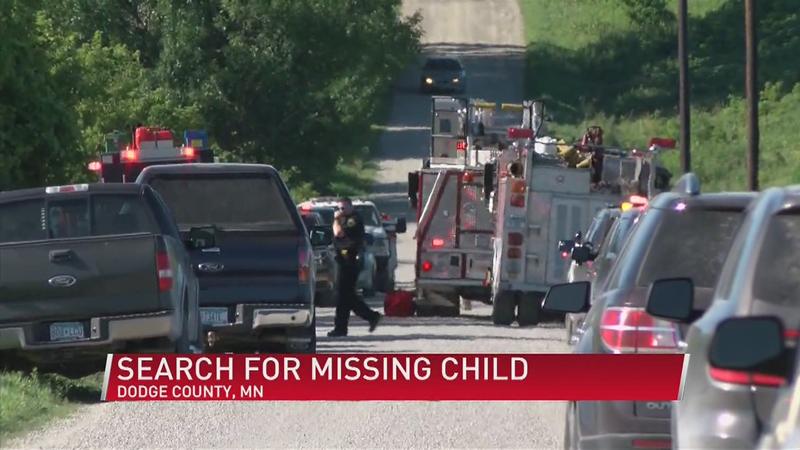
by admin_lauth | Jul 24, 2018 | Missing Person, Personal Investigations, Private Investigations News, Tips & Facts, Unsolved Homicides

Every week there are new stories in the news about teenagers who have either run away or been kidnapped. When parents see these tragedies play out through media coverage, there’s usually one common thread running through their minds, “This could not happen to my child.” Despite statistics on the demographics most often affected by missing or runaway teens, no family is immune. Parents of a missing child or teen will most certainly have never found themselves in these frightful circumstances before and be at a loss for how to proceed. In addition to filing a report with police, the parents might also consider hiring a private investigator to conduct an independent, concurrent investigation. Finding missing teens is not always the speciality of an individual law enforcement agency, which means your child could fall through the cracks. Finding missing teens is not easy, especially when they do not want to be found. That’s why many families rely on the independent tenacity of private investigators to find their missing teens. Should you hire a private investigator to locate your missing or runaway child?
An Overwhelming Task
The Office of Justice Programs estimates the first 48 hours after your child goes missing are the most crucial in the timeline of any investigation. During these moments, your instinct might be to go find the child yourself or help conduct searches; however, as a parent or guardian of a missing child, your information is the most crucial. A 1982 congressional mandate requires law enforcement to immediately take a report following the disappearance of a child under the age of 18. However, recent reports estimate the excess of some 800,000 missing persons cases reported every year, 85-90% of those cases are individuals under the age of 18. What this statistic tells us is law enforcement, in most parts of the country, are overwhelmed by a caseload (with some departments averaging over 40 cases per investigator) leaving your missing child as a file amidst a stack of equally devastating missing child cases. As law enforcement agencies across the country remain stretched, missing child cases—especially ones where the child appears to have run away—are not always the first priority, as investigators attempt to perform a triage regarding which case requires their attention the most. Private investigators only average between three and four cases at any given time, meaning your child’s case will be at the top of their list of priorities. During the crucial FIRST 48 hours, having a private investigator treat your case as a priority can be the difference between acquiring invaluable information and losing a lead.

Constitutional Red Tape
One of the glowing advantages of hiring a private investigator to find your missing child or teen is the fact PIs possess far more autonomy than the average law enforcement officer or investigator. For instance, when a suspect has been identified, law enforcement often must secure a warrant for them to be tracked as the investigation unfolds. Paperwork and bureaucracy within the chain of command can cause the wheels of justice to turn slowly in regards to local or state law enforcement. Not only are PI’s not required to file this sort of paperwork, but they can also do so without the supervision of a governing law enforcement administration, so the case progression is not stalled for lack of warrant or administration approval.
The Binds of Jurisdiction
With a private investigator conducting an independent, concurrent investigation, there will never be any issues of jurisdiction when pursuing leads. Say your family lives in Indiana, but while on an out-of-state family vacation, your child goes missing in a crowd. As missing and abducted children across state or even international borders, local law enforcement exponentially lose power to follow leads maybe illuminating the child’s whereabouts. It is also not uncommon for two or more law enforcement agencies to enter a tug of war when it comes to who has jurisdiction over a particular case based on the specific circumstances. This can lead to the loss of leads or time as agencies hash out the details. Private investigators are never bound by jurisdictional bureaucracy. They can travel between states following the trail of a missing child, all without having to file any paperwork or obtain special permissions from superiors.
While law enforcement may have a wealth of experience and exclusive tools at their disposal, it’s important to remember that these civil servants are often overwhelmed with an immense case-load and can only do so much when it comes to the constitutional and jurisdictional boundaries they cannot cross. Private investigators have the expertise and similar tools of law enforcement, while also having the time to treat your case as a top priority.
Carie McMichael is the Communications and Media Specialist for Lauth Investigations International, writing about investigative topics such as missing persons and corporate investigations. For more information on missing persons topics, please visit our website.

by admin_lauth | Apr 23, 2018 | Consumer Fraud, Criminal Investigation, Missing Person, Personal Investigations
By: Kym Pasqualini, Lauth Investigations Feature Crime Writer

You receive a phone call and hear the voice of someone you don’t recognize. They tell you they have your child and will kill them unless you pay a ransom. They direct you not to call police or you will never see your child again.
What would you do?
You tell the person on the other end of the phone not to hang up. You don’t want to disconnect with the one person that can reunite you with your child. You plead for your child’s safe return. “Please don’t hurt her. I will do whatever you want,” you cry.
They demand you go to the bank and wire a ransom of several thousand dollars. Do you call the police? Do you pay the ransom and hope some thug will return your child to you safe?
A child going missing is every parent’s worst nightmare. For those who do have a missing child, living with such ambiguity is said to be the most traumatic of human experiences.
Sounds like a situation that only happens in the movies, right? Or, something only happening to the wealthy.
According to Newsweek, the Seattle Police Department is issuing warnings to parents advising scammers are targeting parents and demanding a ransom in exchange for the safe return of children they kidnapped . . . well, virtually kidnapped. Police throughout the country are following suit.

On March 8, 2017, in Ravensdale, Kings County, approximately 30 miles southeast of Seattle, a mother drops her children off at the school bus. Shortly thereafter, she receives a phone call from a man who threatened to kill her child if she didn’t pay a ransom.
The mother was able to reach out to the school to make sure her children were there. The school confirmed they were safe.
King’s County Sheriff’s Office told ABC News, this was the first reported incident in their jurisdiction.
In another case, a woman called a father “hysterically crying” claiming to be his daughter and stating she had been kidnapped. A man then got on the phone and told the dad if he didn’t pay a ransom, he would hurt his daughter.
Officers in Denver have responded to several reports of kidnappings. In a press release issued by the Denver Police Department, police say the caller demands a monetary payment in exchange for the release of the victim’s child. The caller dials the parents in the afternoon and demands the ransom to be wired to a bank.
After investigating the recent incidents in Denver, they determined the kidnappings were false and all children involved in the incidents were found safe.
Virtually Kidnapped Daughter
On Monday, April 16th, Sean Hollister was at his residence in Longmont, Colorado, about 15 miles northeast of Boulder, and received a frightening call from his 11-year old daughter who he thought was at school.
“My daughter was in tears, sobbing,” Hollister told the Times-Call. “I thought she was in trouble or something. She said, ‘Dad, I’m sorry I let this happen,’ which is exactly what she would say,” Hollister said.
“I said, ‘What’s wrong,’ and I offered up her name, so he knew my kid’s name,” Hollister said a man got on the phone and told him, “I got your daughter in a truck. She is on her way to Mexico.”
When Hollister told the man he was calling the police, the girl came back on the phone screaming. “Daddy, they are cutting me. Don’t call 911.”
Hollister was able to call police on his cell phone. “The caller told Hollister to get his wallet and identification and promptly leave the house.

Victims of “virtual kidnapping” describe the incident as traumatic.
Hollister’s postman was in the yard when he walked outside. “I’m mouthing ‘Help me,’ and he is freaking out,” said Hollister.
Longmont police showed up at his home fast and they took over from there and the caller hung up. Officers quickly determined Hollister’s daughter was safe.
The traumatized father would later find out the callers were trying to pull off a “virtual kidnapping” scam.
“The gap between the cops getting there and finding out my daughter is okay was terrifying,” said Hollister. “Who would think someone would be that cruel?”
Hollister’s caller had a Mexico number, but police say it is possible the caller was local and hijacked the number to appear like the call was made from out of the country.
In yet another case, a woman received a frantic call her brother had been kidnapped, injured and bleeding out, demanding thousands of dollars through a wire to return him safely. She was able to reach her brother on another phone and never paid any money, but a clear sign anyone can be a victim of this type of horrific scam.
According to FBI kidnapping expert, Agent Eric Arbuthnot, several organizations use these scams regularly to make money.
“Thousands of dollars in ransom,” said Arbuthnot. “And you’re talking about a criminal organization that is capable of doing more than one kidnapping at a time.”
According to Arbuthnot many of the cases have been happening on the West coast and along the border involving criminal organizations from Mexico, some claiming to be members of the cartel.
The FBI has seen recent increases in California, Nevada, New York, and Texas.
Monroe Police Department in Connecticut said by using social media, scammers can identify a victim, look up relatives, and reference names of family members and friends to make the call appear legitimate.
FBI Supervisory Agent Christopher Johnson said his office in St. Louis, Missouri deals with these types of crimes. “Scammers will often mention specific facts about the parent or victim, likely from information they were able to obtain online.”
Authorities say about one in five kidnapping cases are successful resulting in the criminal getting their ransom and not getting caught. While extortion has been around for decades, virtual ransom kidnapping calls are increasing around the country.

FBI Special Agent Glenn Milnor warns parents about virtual kidnapping.
With this emerging scam, the FBI has launched a nationwide campaign to warn parents to fight back against “virtual kidnapping.”
If you receive a virtual kidnapping ransom call…
Unlike traditional kidnapping schemes, a “virtual kidnapper” has not actually kidnapped anyone. According to the Federal Bureau of Investigation, if you receive a call from an individual demanding a ransom for the safe return of a kidnap victim, it is suggested you quickly evaluate the following to determine if you are receiving a legitimate ransom call:
- Caller insists you stay on the phone.
- Call does not come from your child’s cell phone.
- Caller tries to stop you from contacting the kidnap victim.
- Call includes demand for ransom to be paid via wire transfer.
- Ransom amounts may decrease quickly.
Knowing what to do
Police say it is best to hang up the phone; however, if you continue the conversation pay attention to the following:
- If you engage the caller, don’t call out your loved one’s name.
- Deliberately try to slow the situation down and ask to speak to your child directly.
- Ask “proof of life” questions like, “How do I know my loved one is okay?”
- To gain confirmation if your child is an actual kidnapping victim, ask questions only your child would know such as the name of a pet.
- Listen very closely to the voice of the person speaking. If possible record the call.
- Have someone else try to call your child’s cell phone, school, text, social media, etc., to confirm their safety.
- To buy time, repeat the caller’s request and tell them you are writing down the demand or tell the caller you need time to make arrangements.
- Don’t agree to pay a ransom: by wire or in person.
- Don’t deliver money in person.
- Immediately call your local FBI office and police.
According to the National Crime Information Center (NCIC), as of March 31, 2017, there were 86,618 active missing person cases in the FBI database, with 8,792 entered as involuntary.
Experts agree an actual kidnapping with a ransom demand is quite rare but all experts urge parents to be vigilant.
To read the FBI warning, please click here.





 Unfortunately, family members and locals will never have the truth about what happened to Lucas. In the wake of the private investigator’s discovery, autopsy reports were found to be inconsistent with what Glass told both police and the PI, but before the People could build a case against her, Glass was found dead from an apparent suicide. However, were it not for the efforts of the private investigator, Lucas’s father may never have had answers in his son’s disappearance.
Unfortunately, family members and locals will never have the truth about what happened to Lucas. In the wake of the private investigator’s discovery, autopsy reports were found to be inconsistent with what Glass told both police and the PI, but before the People could build a case against her, Glass was found dead from an apparent suicide. However, were it not for the efforts of the private investigator, Lucas’s father may never have had answers in his son’s disappearance.


